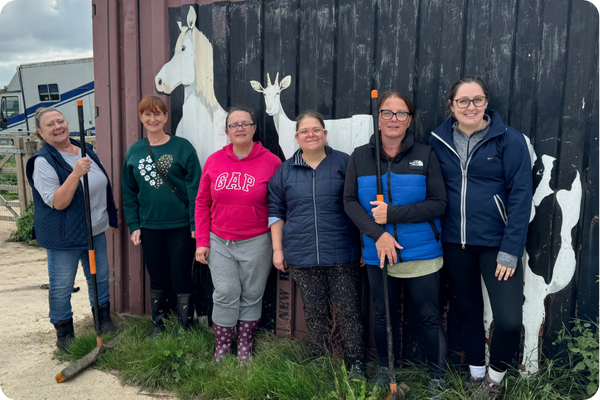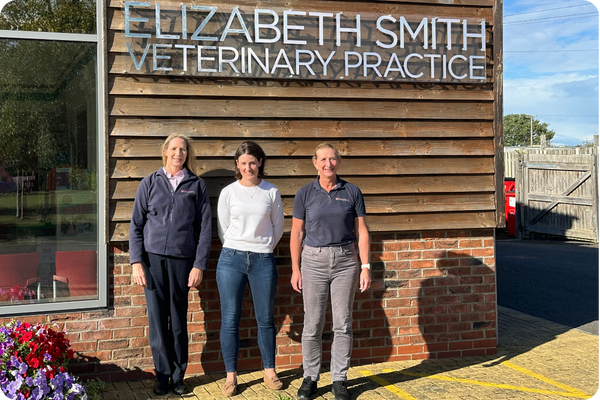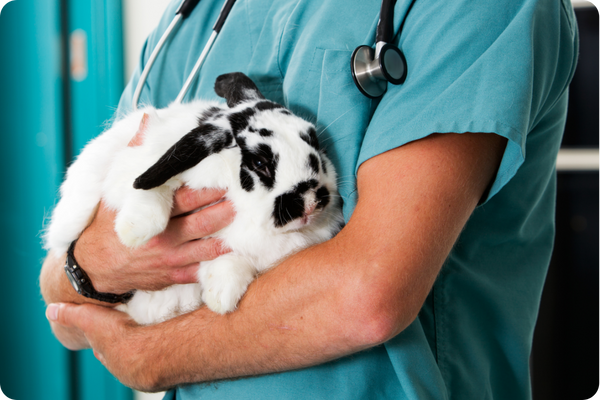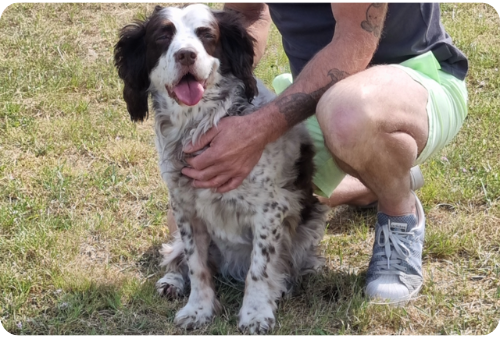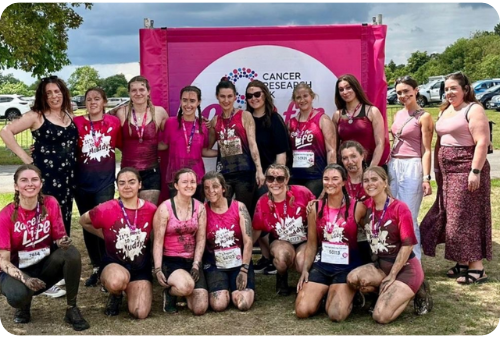We’re thrilled to share some exciting news from the Kin Veterinary community, Dr. Ruth Cawston, Clinical Director and Lead Clinical Advisor, has been featured in the latest edition of Inspired Vet.
Ruth’s journey through veterinary medicine is a powerful story of dedication, growth, and resilience. She began her career as a newly graduated vet at Swayne & Partners in 2014 and has since grown into a key leadership figure within Kin. Now, as both Clinical Director and Lead Clinical Advisor, Ruth blends her passion for evidence-based medicine with a deep commitment to contextualised care—ensuring that every diagnosis and treatment plan serves both pet and owner.
Here you can read the full article:
Inspired Vet Profile
Dr Ruth Cawston MA VetMB CertAVP(SAM) MRCVS
My parents have often teased me (not entirely unfairly) that I chose to go into veterinary medicine as an act of rebellion because I wasn’t allowed to have a dog when I was growing up. After a series of small furry creatures, they finally related when I was sixteen, but by then, I was well on my way down my chosen career path.
I still work in the same practice group (Swayne & Partners) where I started as a newly graduated vet in 2014. I’m often told that this is quite unusual, but to me it has seemed perfectly natural. At each stage of my career, my practice group has offered what I needed, and I know and love my colleagues. I have successfully completed a CertAVP in Small Animal Medicine, gained experience in first-option, hospital, and emergency work, and become a Clinical Director during my tenure here. Why would I go elsewhere?
Swayne & Partners became part of the Kin Veterinary Community in 2023, and alongside my work in practice, I joined the central team as Lead Clinical Advisor in 2024. This role has brought together my love of evidence-based medicine and my long-standing passion for contextualised care, helping to develop diagnostic and treatment options for our clients that are both effective and appropriate for their individual needs.
What is it about your work that enthuses you and brings you satisfaction?
I got into veterinary medicine for the animals, but I stayed for the people. My colleagues and clients are the ones who help me enjoy my days, both in the clinic and outside of it.
In the clinic, a satisfying day is one where I can improve my patients’ well-being, provide their owners with a deeper understanding of how to improve their pets’ health, and help my team work together to achieve these same goals.
My Advisor role allows me to think more deeply about how and why we make choices in our clinic, creating structures that make compassionate, evidence-based practice as easy as possible for our clinicians.
What is the biggest challenge to staying passionate in your veterinary career you’ve overcome, and how did you approach it?
Around two years after qualifying, I developed a series of health problems that meant I had to reduce my hours and take a step back from some clinical work. I’m definitely guilty of tying my self-esteem to my role as a vet, and being forced to do less affected my sense of worth much more than I had anticipated.
I had to embrace two truths to get through this. Firstly, and more obviously, my worth as a human does not equate to my value as a vet. There are many other meaningful aspects of my life, and when I stepped back and looked at it from a distance, I could see that my clinical skills are only one small part of my whole.
Secondly, omnicompetence is not only an impossible standard, but an undesirable one. Every vet’s skillset is a trade-off between breadth and depth – specialists are the extreme example of this, but it’s true of GPs and Advanced Practitioners, too. Each of us will, intentionally or not, develop our own unique skill set. The best practices contain the right mix of skills for that setting – whether that’s a lone vet with a broad range of skills, a multi-vet GP practice where each clinician has one area of extra depth, or the specialist hospital where breadth is sacrificed for a depth that can’t be matched in general practice. My forced restriction on breadth didn’t mean my clinical abilities were suddenly meaningless; it just meant I should embrace depth in other areas and deploy them in the right context.
What advice can you share with others embarking on similar paths about finding fulfilment in their veterinary career?
My career has only ever been planned one step ahead. And by “planned”, I mean setting firm goals, such as completing a Certificate or becoming a CD. I have had countless “notions” of what I might like to do and how I might like to do it. Still, I kept my thinking deliberately open to allow flexibility, both in terms of how the world around me evolved and how my own thinking and personal circumstances have shifted over time.
I believe this has ultimately made my career more satisfying, despite a few twists and turns. Having no goals would be unstructured and (for me) unsatisfying, but having rigid plans would have meant missing out on other unexpected opportunities and might have led to unhappy compromises in my life outside of work.
So, my advice would be: it’s great to think big-picture and consider where you may ultimately want to end up, as this can help structure your short-term goals. However, don’t miss out on opportunities in your profession or personal life because you’re too focused on following a set path.
What best sums up your approach to keeping yourself and your team motivated and engaged within veterinary careers?
The best way to keep enjoying working in veterinary practice is to care about your work without compromising your own sanity. If you don’t care at all, you won’t be motivated to provide good care to your clients and patients; your patients may not get better, your clients won’t be happy, and your colleagues will be upset. If you care too much, you’ll take an emotional hit on every case and end up tired, depressed, and at risk of burning out.
Caring in the right way requires the right attitude, but also time and mental capacity. We all find it hard to care if we are overworked, unappreciated, tired, or stressed by practice politics. Both in my practice and in Kin Veterinary Community, I aim to create time and space for teams to genuinely care about their clients and patients, so they can take satisfaction from treating them.
What do you feel would most benefit job satisfaction in the veterinary professions, and how could we work towards implementing this?
General practice is increasingly recognised in our profession as the amazing, complex, challenging working environment that it is. Veterinary GPs’ skills in communication, empathy, and (more recently) contextualised care are increasingly recognised and praised – and rightly so.
What is still missing is the recognition that, when done right, it is also an academically complex and challenging field that covers areas not currently served by any specialty discipline, and which is hugely underserved both in terms of teaching and research to advance it.
Don’t just tell GP vets that they are amazing humans (though they are!). Recognise that general practice is an academic discipline in its own right, and in every sphere, from teaching to research to regulation, it deserves deliberate consideration.
First published in Inspired Vet issue 3, 03/06/2025 https://www.veterinarywoman.co.uk/2025/06/inspired-vet-download-issue-3/
Inspired by Ruth’s journey?
We’re always looking for passionate, thoughtful professionals to join our team. If you’re ready to grow your career in a supportive, forward-thinking environment that values well-being as much as clinical excellence—we’d love to hear from you.

